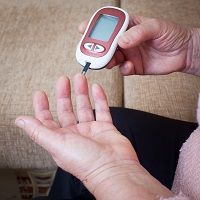Article
Linagliptin Non-inferior to Glimepiride on Cardiovascular Safety
Author(s):
The CAROLINA cardiovascular safety study found that linagliptin was non-inferior to glimepiride in time to a composite cardiovascular endpoint.

Positive topline results have been announced for a non-inferiority trial of linagliptin (Tradjenta) compared glimepiride in patients with type 2 diabetes mellitus. The CAROLINA (CARdiovascular Outcome study of LINAgliptin versus glimepiride in patients with type 2 diabetes) study met its primary outcome of non-inferiority of linagliptin compared to glimepiride in the time to first occurrence of cardiovascular death, non-fatal myocardial infarction, or non-fatal stroke.
Linagliptin is a dipeptidyl peptidase-4 (DPP-4) inhibitor that was approved by the US Food and Drug Administration (FDA) in 2011 as a supplement to diet and exercise to improve glycemic control in adult patients with type 2 diabetes. The CAROLINA study had a median of 6 years of follow-up—the longest safety study of a DPP-4 inhibitor in a cardiovascular outcomes trial.
"These data provide further confidence in the well-established safety and tolerability profile of Tradjenta for the treatment of adults with type 2 diabetes," added Jeff Emmick, MD, PhD, vice president, Product Development, Lilly Diabetes, in a press release. "Tradjenta is an important option for physicians considering a DPP-4 inhibitor for their patients with type 2 diabetes. Boehringer Ingelheim and Lilly look forward to sharing the full results later this year.”
The phase 3, double-blind study enrolled 6103 adults with type 2 diabetes who were at increased risk of cardiovascular disease or who had established cardiovascular disease. Participants from 43 countries and over 600 study sites were randomized to either linagliptin 5 mg/day or glimepiride 1-4 mg/day.
The study reported no new safety signals. However, linagliptin may cause serious adverse effects including pancreatitis, hypoglycemia, allergic reactions, joint pain, and bullous pemphigioid, a skin reaction. The most common side effects of linagliptin include stuffy or runny nose, sore throat, cough, and diarrhea.
Another study, CARMELINA (CArdiovascular safety and Renal Microvascular outcomE with LINAgliptin in patients with type 2 diabetes at high vascular risk) demonstrated the cardiovascular safety of linagliptin compared to placebo in patients with type 2 diabetes at high risk for cardiovascular and/or kidney disease. This phase 4 trial involved 6979 patients who were randomized to linagliptin 5 mg/day or placebo.
"Guidelines from the American College of Cardiology and American Diabetes Association recommend type 2 diabetes treatments with proven cardiovascular benefits for patients with established cardiovascular disease," said Thomas Seck, MD, senior vice president, Medicine and Regulatory Affairs, Boehringer Ingelheim Pharmaceuticals, Inc, in a statement. "But physicians considering additional therapies to lower glucose values for their patients need a DPP-4 inhibitor with an established long-term safety profile. Along with CARMELINA, CAROLINA provides Tradjenta with one of the most comprehensive datasets on the safety of a DPP-4."
The full results of the CAROLINA study will be presented at the American Diabetes Association’s 79th Scientific Sessions in San Francisco on June 10th.




